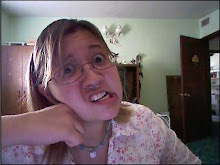A nip here and a tuck there
For the skin that you're not happy in.
An artificial fountain of temporary youth.
Creams to clear your wrinkles,
And a diet to slim your waist-
So you can wear your modern clothing
For a generation that lacks place.
Eventually you will stop with time,
And beauty will tell you "No".
What was once your stinking flesh,
Will be what helps the flowers grow.
Just a little something I wrote a few years back... I think I had written it because I was getting tired of hearing commercials on the TV advertising beauty products, and other items that are supposed to make you appear younger.
I hate how we can't be comfortable in our skin... but the message was basically this:
Prevent time on your face and body all that you want, you're still going to die in the end :P.
